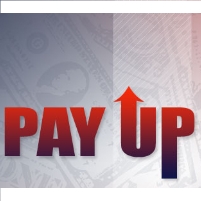Just Being Accused of Crime in Florida Can Cost You
Sunday, March 28, 2010
 Pay Up (graphic: Ninth Judicial Circuit Court of Florida)
Pay Up (graphic: Ninth Judicial Circuit Court of Florida)
Florida has earned a reputation for relying on “cash register justice” to help pay for its court system, according to a new report by the Brennan Center for Justice at New York University’s School of Law. What this amounts to is individuals—both those accused and convicted of crimes—paying more and more fines that cover the costs of Florida’s legal system instead of the legislature paying for these expenses out of the state budget.
“Legal financial obligations” (LFOs) is the official term used to describe the fees, which can range from the cost of applying for a public defender to reimbursing a county or city for prosecuting a convicted criminal.
The Brennan Center found that Florida lawmakers have approved more than 20 new categories of LFOs since 1996 “without considering the effects of the new LFOs and without examining whether cumulative debt promotes recidivism or otherwise hinders reentry into society for those convicted of crimes.”
Furthermore, state officials have removed many of the exemptions that once kept the poor from having to pay these fees, adding another burden onto the most economically-disadvantaged of society.
Florida allows private debt collection firms to charge up to 40% extra to collect unpaid court debts.
-Noel Brinkerhoff
The Hidden Costs of Florida’s Criminal Justice Fees (by Rebekah Diller, Brennan Center for Justice)
Pinched Courts Push to Collect Fees and Fines (by John Schwartz, New York Times)
- Top Stories
- Unusual News
- Where is the Money Going?
- Controversies
- U.S. and the World
- Appointments and Resignations
- Latest News
- Trump Goes on Renaming Frenzy
- Trump Deports JD Vance and His Wife
- Trump Offers to Return Alaska to Russia
- Musk and Trump Fire Members of Congress
- Trump Calls for Violent Street Demonstrations Against Himself






Comments